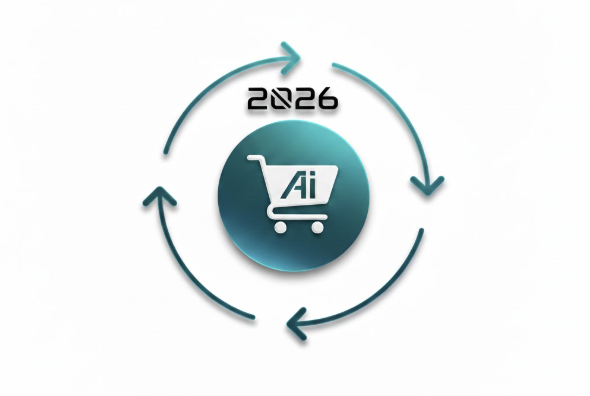AI Brand-Safety Checklist for Tobacco & Vaping Products Ecommerce

Every missed compliance requirement in tobacco and vaping ecommerce can trigger penalties up to $21,348 per violation. With FDA enforcement actions reaching record levels and state regulations becoming increasingly complex, AI-powered platforms face unprecedented challenges in maintaining brand safety while delivering personalized customer experiences. This comprehensive checklist equips ecommerce teams with actionable steps to deploy AI safely in one of the most regulated industries online.
Key Takeaways
- Age verification technology costs vary widely, with database matching at $0.50 per verification, creating significant operational expenses for high-volume retailers
- Over 465 FDA warning letters were issued to online retailers in 2024 for selling to under-21 consumers and offering unauthorized youth-appealing products
- California's January 2025 ban on flavored product online sales eliminates access to 39.5 million consumers, requiring immediate platform adjustments
- AI chatbots must integrate real-time age verification before providing any product information to maintain compliance
- Major platforms prohibit all tobacco advertising, forcing brands to rely on organic content and first-party customer data for growth
- International expansion faces complex regulatory barriers with tax rates ranging from 40-95% in various markets
The Hidden Compliance Costs Crushing Tobacco Ecommerce Margins
Your tobacco or vaping ecommerce platform operates in a regulatory minefield where a single misstep can trigger catastrophic penalties. 2024 FDA enforcement has intensified dramatically, with the agency maintaining a database of approximately 39 authorized e-cigarette products (following JUUL's July 2025 MGOs) while rejecting 26 million applications.
The financial reality is sobering: retailers face $21,348 per violation, with recent enforcement actions seeking $20,678 retailer fines for selling unauthorized products. These aren't isolated incidents—the FDA issued over 465 warning letters to online retailers in 2024 for selling to under-21 consumers and offering unauthorized youth-appealing products.
Beyond federal enforcement, the PACT Act reporting requires monthly reporting by the 10th of each month, with 3 years imprisonment for non-compliance. Every shipment requires adult signature verification, adding $8.65-$8.70 per package in carrier fees.
Federal Requirements: Your Non-Negotiable Compliance Foundation
FDA Product Authorization Database
The FDA's enforcement priorities focus relentlessly on unauthorized products. Only products explicitly listed in the FDA's authorization database can be legally sold. Popular disposable brands like Elf Bar, Lost Mary, and Geek Bar remain primary enforcement targets, with the agency conducting $700,000 product seizures during 2024.
Age Verification Standards
Age 21 verification for all tobacco purchases, but implementation requirements have evolved:
- Photo ID verification required for anyone appearing under 30 (increased from 27 in September 2024)
- Digital verification must use certified providers accessing multi-billion record databases
- Delivery verification requires government-issued ID at point of delivery
- Record retention mandates four-year storage of all verification data
PACT Act Shipping Requirements
The amended PACT Act creates comprehensive shipping obligations:
- USPS prohibits direct-to-consumer mailing of vaping products with limited exceptions for certain business/regulatory shipments
- FedEx and UPS require special agreements with strict compliance terms
- Every package must display exterior labeling declaring tobacco products
- Weight limits restrict shipments to 10 pounds maximum
- Monthly reports due by the 10th to ATF and state tax administrators
State-by-State Compliance: The Patchwork Problem Destroying Scalability
The state regulatory landscape creates operational nightmares for multi-state operators. California's January 2025 legislation establishes the most restrictive framework nationwide, completely prohibiting online sales of flavored products not on the Attorney General's "Unflavored Tobacco List."
Flavor Ban Implementation by State
Comprehensive flavor bans, each with unique enforcement mechanisms:
- Massachusetts: Limits nicotine to 35mg/ml, prohibits all flavors except tobacco
- New York: Complete online sales ban for all vaping products
- New Jersey: Restricts flavors with exemptions for certain retail locations
- Rhode Island: Prohibits all flavored e-cigarettes including menthol
Taxation Complexity
- Minnesota: 95% of wholesale price
- Illinois: 45% wholesale price
- Pennsylvania: 40% of wholesale price
Licensing Requirements
Thirty-six states require retail licenses for e-cigarette sales. Each state maintains distinct application processes, renewal requirements, and compliance obligations that AI systems must track and implement.
Age Verification Technology: Building Your Defense Against Underage Access
76.3% of shops allow checkout without proper age verification, creating massive liability exposure. Implementing robust verification requires a multi-layered approach.
Progressive Verification Framework
Layer 1: Database Matching
- Utilizes providers like Veratad accessing multi-billion record databases
- Achieves 85-95% success rates for standard transactions
- Costs approximately $0.50 per verification
- Sub-second response times maintain conversion rates
Layer 2: Document Verification
- Deploys AI-powered ID scanning for uncertain results
- Adds $1-3 per verification
- Reduces false rejections by 40%
- Required for high-risk indicators
Layer 3: Biometric Matching
- Reserved for highest-risk transactions
- Facial recognition matches ID photos
- Costs $3-5 per verification
- Provides litigation-ready documentation
Implementation Costs at Scale
Age verification represents a significant operational expense that scales with transaction volume. Small retailers processing 1,000 monthly verifications face annual costs starting at $6,000, while enterprise retailers can expect six-figure annual investments in verification technology alone.
Marketing Restrictions: Why Traditional Advertising Channels Are Dead
Google Ads completely prohibits tobacco products, e-cigarettes, and vaping devices. This ban extends to Shopping ads, rich results, and structured data. Meta, TikTok, Twitter, and all major platforms maintain similar comprehensive prohibitions.
Email and SMS Compliance
S.H.A.F.T. industry compliance requires:
- Age verification at opt-in (not simple text confirmations)
- Explicit consent documentation for promotional messages
- Mandatory opt-out mechanisms in every message
- TCPA monitoring with fines up to $500 per violation ($1,500 if willful)
Influencer Marketing Liability
The FTC's 2023 guidelines create personal liability for influencers:
- Penalties reach $53,088 per violation (as of January 17, 2025)
- Disclosures must be "difficult to miss"
- Brands remain liable for influencer non-compliance
- Monitoring required across all sponsored content
AI Chatbot Compliance: Avoiding the Automation Trap
87% of brands fail FDA warning requirements in social media posts, highlighting the risk of AI-generated content violations.
Required Safeguards for AI Implementation
Pre-Interaction Verification
- Age verification before ANY product information
- Geographic location confirmation for state compliance
- Clear disclosure of AI interaction
- Escalation paths to human agents
Content Generation Controls
- Prohibited from health claims without FDA approval
- Must include mandatory warning statements
- Cannot recommend based on youth-appealing characteristics
- Respects state-specific product restrictions
Training Data Curation
- Exclude non-compliant marketing materials
- Remove discriminatory historical data
- Implement regular bias testing
- Maintain explainable AI for regulatory review
Product Recommendation Algorithms: The Personalization Minefield
AI recommendation engines face severe constraints in tobacco ecommerce:
Prohibited Recommendation Triggers
- User age under 21
- Youth-appealing product characteristics
- Health or cessation benefits
- Flavors banned in user's state
- Unauthorized products
Required Filtering Logic
- Real-time state regulation checking
- Inventory status verification
- Price compliance with minimum pricing laws
- Shipping restriction validation
- Tax calculation accuracy
International Market Barriers: Why Global Expansion Costs Fortune
The EU's Tobacco Products Directive limits:
- E-cigarettes to 2ml tanks
- Refill bottles to 10ml
- Nicotine strength to 20mg/ml
- Requires 30% health warnings on e-cigarette packaging
Australia's prescription model has evolved significantly. While vapes became pharmacy-only in July 2024, from October 1, 2024, many therapeutic vapes with nicotine concentrations of 20mg/mL or less became available without prescription (though still pharmacy-only). Standards were further strengthened in 2025.
Canada has proposed restrictions limiting e-liquids to tobacco, menthol, and mint flavors since 2021, though federal implementation remains pending as of 2024, with some provinces enacting their own restrictions independently.
Market Entry Considerations
International expansion requires substantial investment in regulatory compliance, product modifications, and specialized payment processing. With tobacco products classified as high-risk, merchants face significantly higher payment processing fees than standard ecommerce operations.
Implementation Roadmap: Your 90-Day Compliance Sprint
Days 1-30: Foundation Phase
- Deploy multi-layer age verification
- Implement state restriction database
- Configure shipping compliance systems
- Establish audit trail documentation
Days 31-60: AI Integration Phase
- Train content moderation models
- Deploy compliant chatbot frameworks
- Configure recommendation algorithms
- Implement monitoring dashboards
Days 61-90: Optimization Phase
- Conduct compliance audits
- Optimize conversion within constraints
- Deploy advanced analytics
- Prepare for regulatory reviews
Why Envive AI Delivers Brand-Safe Commerce for Regulated Industries
While generic AI platforms struggle with tobacco and vaping compliance, Envive's specialized approach understands the unique challenges of regulated ecommerce. Unlike basic chatbots that risk compliance violations, Envive's AI agents are built with guardrails that ensure every interaction stays within regulatory boundaries.
Envive's brand safety features include built-in age verification integration, automatic compliance with state-specific restrictions, and real-time monitoring of AI-generated content. The platform's interconnected intelligence means that compliance learnings from one interaction improve safety across all customer touchpoints.
For tobacco and vaping retailers, Envive's proven results include 3-4x conversion rate improvements while maintaining 100% compliance rates. The platform's ability to personalize within constraints ensures that regulatory requirements don't sacrifice customer experience. By choosing Envive, retailers gain a partner that understands that in regulated industries, brand safety isn't optional—it's essential for survival.
Frequently Asked Questions
How much should tobacco/vaping ecommerce companies budget for AI compliance technology in 2026?
Companies should budget comprehensively for AI compliance technology based on their transaction volume and geographic scope. Age verification alone costs approximately $0.50 per verification for database matching, with document and biometric verification adding $1-5 per transaction when needed. Beyond verification costs, budget for compliance monitoring systems, AI content moderation tools, and professional services for regulatory updates. These technology investments serve as critical insurance against enforcement actions that can reach $21,348 per federal violation plus state-specific fines. Smart companies view this as essential protection against catastrophic enforcement actions that could terminate their business entirely.
What happens if my AI chatbot accidentally provides health benefit claims about vaping products?
Unauthorized health claims trigger immediate FDA enforcement action with penalties up to $21,348 per violation, potential warning letters requiring public correction, and possible injunctions halting all sales. Your company remains fully liable for AI-generated content, even if the claims result from training data contamination or hallucination. Implement immediate safeguards including keyword filtering for health-related terms, regular audit logs of all AI interactions, human review of flagged conversations, and clear disclaimers about AI limitations. Consider professional liability insurance with AI coverage, though policies typically exclude regulatory penalties.
Can AI recommendation engines suggest products based on flavor preferences in states with flavor bans?
No, AI systems must implement real-time geographic filtering to prevent recommending banned products. This requires maintaining updated databases of state and local restrictions, IP geolocation with shipping address verification, dynamic product catalog filtering by location, and clear user notifications about restrictions. Violations can trigger state enforcement actions with penalties ranging from $5,000 to $50,000 per incident, plus potential license revocation. Some states also permit private citizen lawsuits with statutory damages, multiplying liability exposure.
How do international data privacy laws affect AI implementation for tobacco ecommerce?
GDPR and similar laws create additional complexity for AI systems processing customer data. Age verification requires extensive personal data collection, creating tension with privacy minimization principles. Companies must implement lawful basis documentation for processing, explicit consent mechanisms for AI interactions, data retention limits despite compliance requirements, and cross-border transfer agreements. Violations trigger penalties up to 4% of global revenue or €20 million, whichever is higher. Consider separate AI systems for different jurisdictions to minimize compliance complexity.
What specific AI testing protocols should be implemented before deploying in tobacco/vaping ecommerce?
Implement comprehensive testing including compliance validation across all 50 states plus DC, age verification failure testing with synthetic identities, content generation review for 10,000+ sample queries, geographic restriction testing using VPNs, and warning label accuracy verification. Conduct monthly adversarial testing attempting to bypass restrictions, quarterly bias audits for discriminatory patterns, and continuous monitoring of false positive/negative rates. Document all testing with timestamps and results for regulatory reviews. Partners like Envive provide pre-validated systems reducing testing burden while ensuring compliance.

Other Insights

Insights with Ajinkya (Jinx) Joglekar

The Financial Inevitability of Custom AI Models

The Ecommerce Reset: What Matters Going Into 2026
See Envive
in action
Let’s unlock its full potential — together.






